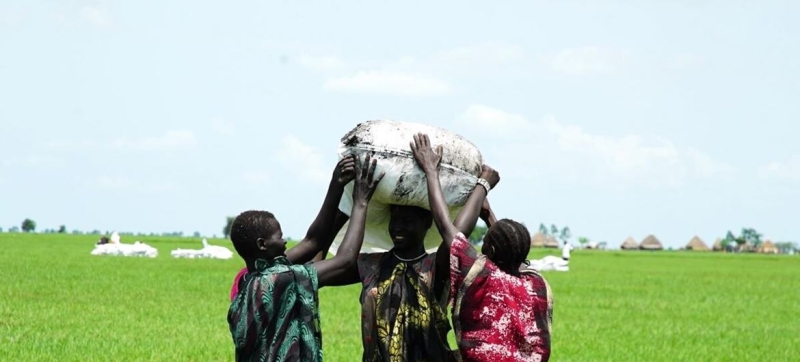
Emergency food assistance in Upper Nile State of South Sudan. South Sudan: Political crisis and corruption fuel violence Peace and Security
The escalating political crisis in South Sudan is provoking renewed armed violence and exacerbating the already dire situation of the country’s people. This was stated today by experts from the UN Commission on Human Rights in South Sudan following their mission to the headquarters of the African Union in Addis Ababa, Ethiopia.
South Sudan gained independence in July 2011, but already at the end of 2013, fierce fighting broke out between forces loyal to President Salvatore Kiir and supporters of his rival Riek Machar. Although the war ended with a peace agreement and the formation of a government of national unity, tensions rose again following the arrest of Machar—the first vice president and opposition leader—earlier this year.
The peace process has stalled impasse
The Commission noted that South Sudanese leaders are “deliberately delaying” the implementation of peace agreements, despite years of efforts by the African Union and regional mediators.
Armed clashes are again occurring on a scale not seen since 2017. At the same time, civilians who suffer from human rights violations and are forced to leave their homes due to violence bear the brunt of the violence. accountability continues to fuel political intransigence, impunity, violence and corruption.”
The Commission’s recent report highlights that corruption and embezzlement of public funds remain key factors conflict.
Political crisis
The head of the mission, Barney Afako, said that the current political crisis, increased hostilities and “systemic, uncontrollable corruption” reflect the failure of the efforts of the political leadership.
“If there is no immediate, sustained and coordinated political intervention from the states of the region, South Sudan risks sliding into a full-scale war with unpredictable consequences,” he emphasized he.
Afako added that the people of South Sudan “are looking to the African Union and the region” to save the country from avoidable disaster.
Justice as a condition peace
The Commission called on the African Union to expedite the establishment of transitional justice mechanisms provided for in the peace agreement, including a hybrid court.
“Today, more than ever, South Sudan needs justice, said the Chairman of the Commission, Yasmin Suka. “Promises made to victims many years ago remain unfulfilled.”
According to her, the activities of the hybrid court should not only ensure accountability for past crimes, but also strengthen national institutions of justice.
Humanitarian consequences
UN experts reported that the number of armed clashes and forced displacements is growing again: about 300 thousand people have left the country since the beginning of the year. The region is home to 2.5 million South Sudanese refugees.
However, about two million people remain internally displaced within South Sudan. The country has also become a refuge for 560,000 people fleeing war-torn Sudan.
“Rising violence, mass displacement and the erosion of a seven-year peace deal ago, show that South Sudan will not be able to recover without stability and justice,” said Commissioner Carlos Castresana Fernandez. He stressed the need to create “robust and independent justice and accountability mechanisms.”
“The African Union and regional partners must act now— not only to prevent another war, but to lay the foundation for a just world based on the rule of law,” added the expert.
Members of the Commission on Human Rights in South Sudan are not UN employees and work on a voluntary basis. The Commission was established by the UN Human Rights Council in March 2016.
